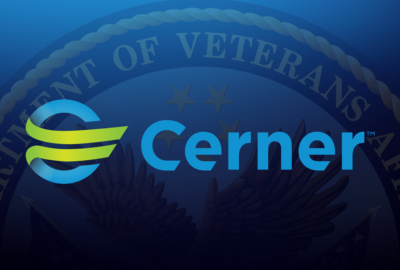

A nomination hearing for chief information officer at the Veterans Affairs Department comes as half of senior leadership positions within the VA's Electronic He...
The president’s pick to lead the Veterans Affairs Department’s biggest IT initiative in its history will soon have his day before Congress.
The Senate Veterans Affairs Committee announced a Sept. 5 nomination hearing for James Gfrerer, the nominee to be VA’s permanent assistant secretary for information and technology.
VA hasn’t had a permanent CIO in more than 18 months, and earlier in August, it lost two of its top executives leading the agency’s electronic health record modernization.
Genevieve Morris, who was on detail from the Office of the National Coordinator for Health IT, resigned from her position as chief health information officer for VA’s EHR Modernization Office. Morris announced her resignation on Twitter.
Chief Medical Officer Ash Zenooz has also announced her resignation.
Their departures leave the EHR Modernization Office with about half of its senior leadership positions staffed. Rank-and-file positions are “sparsely” filled and mostly staffed by detailees, according to Rep. Jim Banks (R-Ind.), who leads the new House Veterans Affairs Subcommittee on Technology Modernization.
In a letter to VA Secretary Robert Wilkie, Banks called the department’s leadership dedicated to the EHR modernization “deteriorating” and “rudderless.”
“It would be a tragedy for the program to be undermined by personality conflicts and bureaucratic power struggles before it even begins in earnest,” Banks wrote. “In fact, despite several requests, I was not even able to meet with the EHRM leadership team before these departures. I am dedicated to pursuing a constructive oversight agenda to encourage VA to make the right decisions, but any engagement is difficult without stable leadership.”
Banks urged Wilkie to immediately find a new chief health information officer and a new chief medical officer, who, he said, should come from within the Veterans Health Administration.
“It is crucial this person commands the respect of the VHA workforce, as he or she must represent its views in the extremely sensitive task of redesigning clinical processes,” Banks said.
He requested a detailed organizational chart of the EHR Modernization Office, along with the contractors assigned to support the project.
Banks’ subcommittee is tasked to oversee VA’s implementation of a new electronic record, among other IT projects.
The subcommittee has the first of at least three planned hearings on the VA EHR effort scheduled for mid-September.
Congress, the Government Accountability Office and other former VA executive have said having a permanent, strong leader behind VA’s EHR modernization efforts will be key to its success.
Gfrerer would come to VA from his current position as an executive director with Ernst & Young, where he worked in the firm’s cybersecurity practice. He also joins a long list of VA CIOs — both permanent and interim — who are veterans. Gferer served in the Marine Corps for more than 20 years, and was a Defense Department detailee to the Department of State, where he led interagency portfolios in counterterrorism and cybersecurity.
In addition to Gfrerer, the Senate VA Committee will also hear next week from Tamara Bonzanto, the president’s nominee to lead VA’s Office of Accountability and Whistleblower Protection.
If confirmed, Bonzanto also faces a difficult task: establishing a relatively new office as a trusted place for veterans and their whistleblower claims.
Copyright © 2024 Federal News Network. All rights reserved. This website is not intended for users located within the European Economic Area.
Nicole Ogrysko is a reporter for Federal News Network focusing on the federal workforce and federal pay and benefits.
Follow @nogryskoWFED



